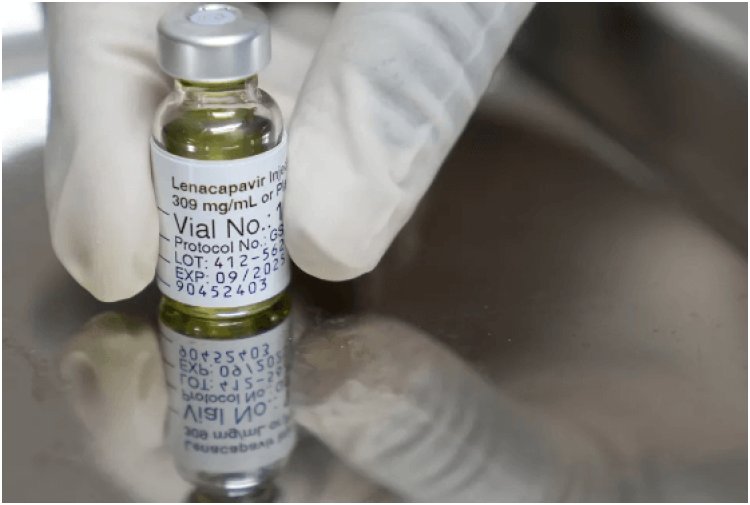HIV Prevention: Lenacapavir Shows Total Protection for Young Women
HIV Prevention: Lenacapavir Shows Total Protection for Young Women

HIV prevention has been achieved with the development of Lenacapavir, a new drug that has shown total protection for young women in clinical trials.
This promising development offers hope for a demographic that has been disproportionately affected by the HIV epidemic.
Lenacapavir, an antiretroviral medication, works by inhibiting a key protein in the HIV virus, preventing it from replicating within the body. Unlike other medications that require daily doses, Lenacapavir can be administered as an injection every six months, making it a more convenient and less burdensome option for users. This extended dosing schedule is expected to improve adherence to the treatment regimen, which is crucial for its effectiveness in preventing .
The clinical trials for Lenacapavir involved thousands of participants from various regions, with a significant focus on young women who are at high risk of contracting . The results were astounding, showing a 100% efficacy rate in preventing infection among those who received the drug. This level of protection is unprecedented and has generated excitement among healthcare professionals and researchers alike.
One of the key reasons young women are a focus in prevention efforts is their increased vulnerability to the virus due to biological, social, and economic factors. In many regions, particularly in sub-Saharan Africa, young women face higher rates of HIV infection compared to their male counterparts. This disparity is driven by a range of factors including gender inequality, limited access to education and healthcare, and socio-economic challenges that increase their risk of exposure.
Lenacapavir’s success in clinical trials is seen as a game-changer for HIV prevention strategies. Traditional methods such as condoms and daily oral pre-exposure prophylaxis (PrEP) have been effective but face challenges related to consistent use and accessibility. The six-month injection regimen of Lenacapavir addresses these issues by providing a long-lasting and discreet form of protection, reducing the likelihood of missed doses and improving overall adherence.
The development of Lenacapavir is the result of years of research and collaboration among scientists, pharmaceutical companies, and public health organizations. The drug’s unique mechanism of action, targeting the capsid protein, distinguishes it from other antiretrovirals and underscores the innovative approach taken in its development. This breakthrough is a testament to the advancements in medical science and the ongoing commitment to finding effective solutions to combat the global epidemic.
Public health officials and advocates are optimistic about the potential impact of Lenacapavir on prevention efforts, particularly for young women in high-risk areas. The availability of a highly effective and long-lasting preventive measure is expected to significantly reduce new HIV infections and contribute to the broader goal of ending the HIV epidemic. Efforts are now focused on ensuring that Lenacapavir is accessible and affordable, particularly in low- and middle-income countries where the burden of it is highest.
The World Health Organization (WHO) and other global health bodies are working on guidelines for the implementation of Lenacapavir in HIV prevention programs. These guidelines will address various aspects of its use, including eligibility criteria, administration protocols, and strategies for monitoring and support. Additionally, there are ongoing discussions about integrating Lenacapavir into existing HIV prevention initiatives and ensuring that healthcare providers are trained to administer the drug and manage its distribution.
Advocacy groups are also playing a crucial role in raising awareness about Lenacapavir and its potential benefits. Education campaigns are being planned to inform communities about the new prevention option and encourage its acceptance and uptake. These efforts are particularly important in addressing any misconceptions or fears related to the new drug and ensuring that individuals are well-informed about their choices in HIV prevention.
The breakthrough with Lenacapavir is not just a scientific achievement but also a beacon of hope for millions of young women around the world. By providing a highly effective and user-friendly method of prevention, Lenacapavir has the potential to transform the landscape of HIV prevention and move closer to the goal of an HIV-free generation. As the world continues to fight the epidemic, the success of Lenacapavir represents a monumental step forward in the journey towards ending HIV and improving the health and well-being of vulnerable populations.

 shivani
shivani 



